Search
Search Results
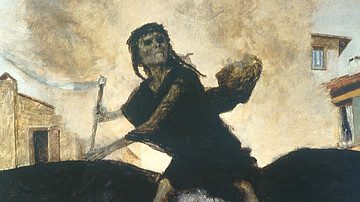
Definition
Black Death
The Black Death was a plague pandemic that devastated medieval Europe from 1347 to 1352. The Black Death killed an estimated 25-30 million people. The disease originated in central Asia and was taken to the Crimea by Mongol warriors and traders...
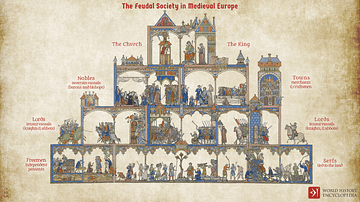
Article
Effects of the Black Death on Europe
The outbreak of plague in Europe between 1347-1352 – known as the Black Death – completely changed the world of medieval Europe. Severe depopulation upset the socio-economic feudal system of the time but the experience of the plague itself...
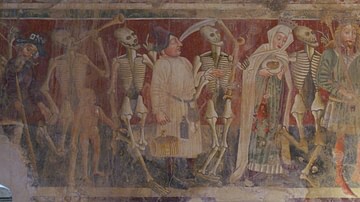
Article
Religious Responses to the Black Death
The Black Death of 1347-1352 CE is the most infamous plague outbreak of the medieval world, unprecedented and unequaled until the 1918-1919 CE flu pandemic in the modern age. The cause of the plague was unknown and, in accordance with the...
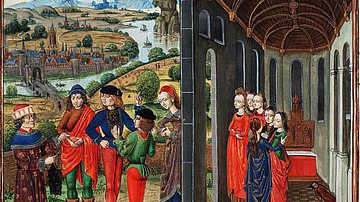
Article
Boccaccio on the Black Death: Text & Commentary
The Black Death is the name given to the plague outbreak in Europe between 1347-1352 CE. The term was only coined after 1800 CE in reference to the black buboes (growths) which erupted in the groin, armpit, and around the ears of those infected...
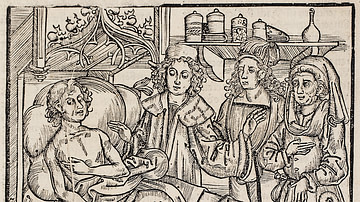
Article
Medieval Cures for the Black Death
The Black Death is the 19th-century CE term for the plague epidemic that ravaged Europe between 1347-1352 CE, killing an estimated 30 million people there and many more worldwide as it reached pandemic proportions. The name comes from the...
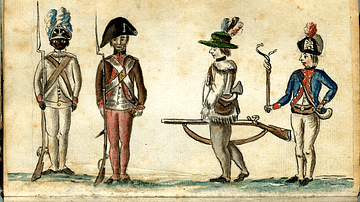
Definition
1st Rhode Island Regiment
The 1st Rhode Island Regiment, also known as Varnum's Regiment or the Black Regiment, was a regiment of the Continental Army during the American Revolutionary War (1775-1783). It was notable for being the first American military unit to consist...
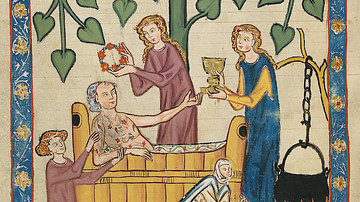
Definition
Medieval Hygiene
People in the Middle Ages have acquired something of a bad reputation when it comes to cleanliness, especially the peasantry. However, despite the general lack of running water and other modern amenities, there were common expectations of...
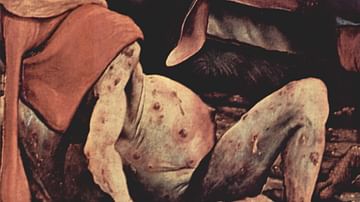
Definition
St. Anthony's Fire
St. Anthony's Fire (SAF) is an illness brought on by the ingestion of fungus-contaminated rye grain causing ergot poisoning (ergotism). The disease's common name derives from the medieval Benedictine monks dedicated to that saint who offered...

Definition
John Wycliffe
John Wycliffe (l. 1330-1384, also John Wyclif) was an English theologian, priest, and scholar, recognized as a forerunner to the Protestant Reformation in Europe. Wycliffe condemned the practices of the medieval Church, citing many of the...

Definition
Colonel Tye
Colonel Tye (c. 1753-1780) was an African-American Loyalist leader who commanded one of the most effective guerilla forces of the American Revolutionary War (1775-1783). Born into slavery, he escaped in 1775 and joined the British cause...